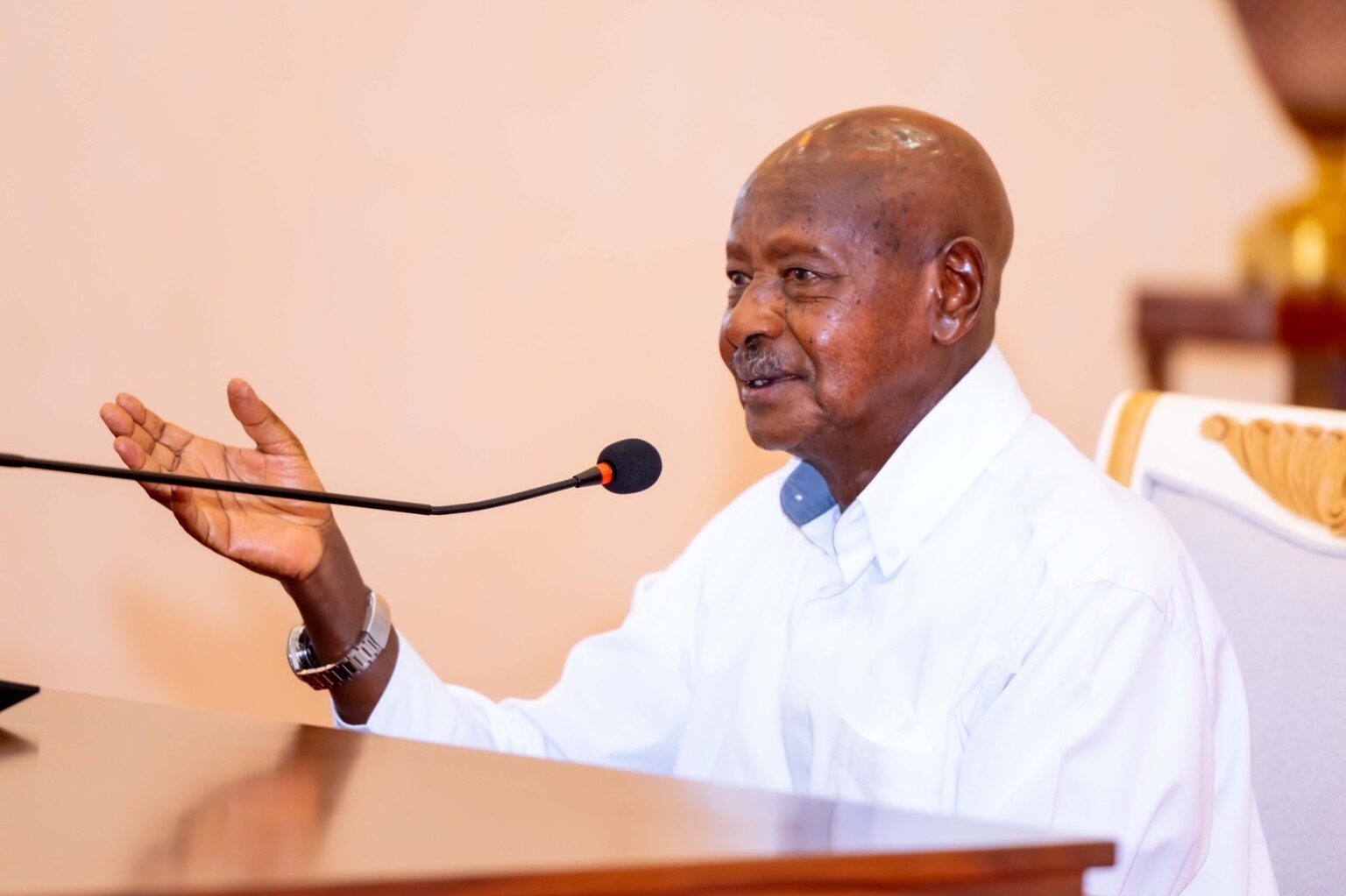President Yoweri Museveni has emphasized the crucial role of military courts in maintaining discipline within the army and addressing cases involving armed criminals.
Speaking at the swearing-in ceremony of the judges at State House on Wednesday, the President called on them to uphold integrity and serve with keen knowledge of the values of the judicial system.
On the importance of military justice, he explained that when soldiers commit offenses, trying them in civilian courts could compromise the military’s discipline.
“The military courts serve two key purposes: first, to maintain discipline within the army, and second, to handle cases involving armed criminals,” Museveni said, stressing the need for a specialized legal system to handle military matters effectively.

The President congratulated the newly sworn-in judges, recognizing the significance of their appointment.
“I congratulate the newly sworn-in judges and their families,” he said, urging them to serve with integrity and uphold the values of the Ugandan justice system. It is essential that Uganda’s justice system reflects the values and aspirations of our people.” He said
In the recent Supreme Court ruling on the trial of civilians in the military courts, one of the justices Catherine Bamugemereire in her ruling, called for an amendment of the UPDF Act to provide for soldiers who commit offenses against civilians to be tried in civil courts.
Justice Bamugemereire however acknowledged that the GCM was created to maintain discipline within the armed forces and that it is a specialized disciplinary tribunal with a limited role in handling military matters. She further clarified that in the 1995 Constitution amendment, the CA didn’t support military courts having jurisdiction over civilians.


The Chief Justice Owiny-Dollo upheld that the General Court Martial (GCM), created under Section 197 (now Section 195) of the UPDF Act, is a subordinate court with specialized jurisdiction. However, he clarified:
“The General Court Martial remains a lawful court but must restrict itself to matters of military discipline. Its jurisdiction does not extend to civilians.”
The Supreme Court struck down Sections 179(1) & (2) (now Sections 177(1) & (2)) of the UPDF Act, which granted military courts the power to try capital offenses.
“Granting subordinate military courts jurisdiction over capital offenses contravenes Articles 129(1)(d) and 126(1) of the Constitution,” the Chief Justice ruled.
The Supreme Court ruled that Sections 191(3)(a) (now Section 189(3)(a)), and Sections 195(3) & (4) (now 193(3) & (4)), which allowed military tribunals to order detention and imprisonment, were unconstitutional.
“The power of detention and imprisonment is a judicial function reserved for courts of law under Articles 23, 126(1), and 129(1)(d) of the Constitution. Military tribunals cannot exercise these powers over civilians,” Owiny-Dollo stated.

The Presidents message however reinforced the government’s commitment to ensuring that the legal system serves both the military and civilian needs while maintaining order and fairness.
President Museveni recently appointed Hon. Justice Zeija Flavian as the new Deputy Chief Justice of Uganda, alongside a Justice of the Supreme Court and eight Justices of the Court of Appeal.
The appointments were made in accordance with Article 142 (1) and (2) of the Constitution, following the advice of the Judicial Service Commission (JSC).
Additionally, the President has appointed 21 acting Judges of the High Court for a two-year term, and reappointed Hon. Lady Justice Bukirwa Faridah Shamilah as an acting Judge for one year after the conclusion of disciplinary proceedings against her.
The appointments mark one of the final acts of the sixth Judicial Service Commission, chaired by Hon. Justice Benjamin L. Kabiito, whose term ended on January 21, 2025. This development aligned with the Judiciary’s expanded structure and reinforce its commitment to being the “People’s Bridge to Justice.”
The appointed judges all appeared before the parliaments appointments committee and were successfully vetted.
They included;
Deputy Chief Justice: Hon. Justice Zeija Flavian
Justice of the Supreme Court: Justice Muzamil Mutangula Kibeedi
Justices of the Court of Appeal: Hon. Lady Justice Ketra Kitariisibwa Katunguka
Hon. Lady Justice Sabiiti Cornelia Kakooza , Stella Alibateese, Hon. Lady Justice Florence Nakacwa,
Hon. Byaruhanga Jesse Rugyema, Musisi John Mike, Hon. Justice Ssekaana Musa, Hon. Lady Justice Nambayo Esta
Among the 21 new acting High Court Judges are notable names such as HW. Sarah Langa Siu, HW. Rosemary Bareebe Ngabirano, Lillian Alum Omara, Charles Kasibayo, and Dr. Ginamia Melody Ngwatu.
Reappointed Acting High Court Judge (One-Year Term):
Hon. Lady Justice Bukirwa Faridah Shamilah





